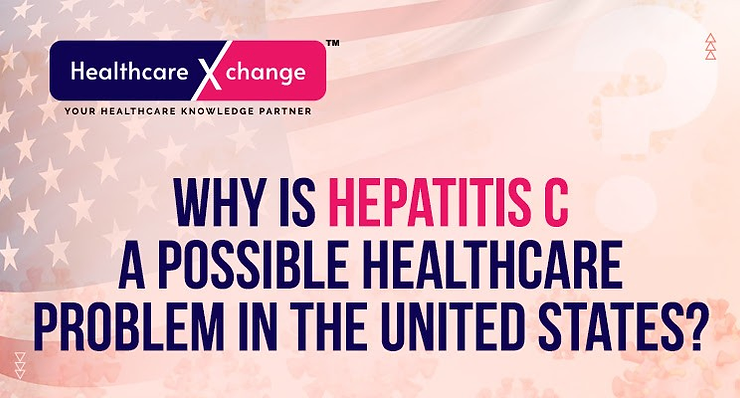
Why is Hepatitis C a Possible Healthcare Problem in the United States?
- Healthcare and General Service
- October 14, 2024
Highlights
-
Nearly 4 million Americans afflicted with Hepatitis C with 75% remaining undiagnosed
-
Hepatitis C causes 15,000 deaths with 17,000 cases detected per year
-
High costs associated with medications hampers treatment for the disease
-
Insurance-related complexity further prevents patients from seeking treatment
Hepatitis C is a virus that causes liver inflammation leading to mild or chronic illness. According to the American Liver Foundation about 4 million Americans are living with this infection. What’s concerning is that almost 75% or 3 million of those afflicted with Hepatitis C are unaware of the condition.
Silent epidemic
Hepatitis C is also referred to as a silent epidemic as the disease often remains asymptomatic for a prolonged period, causing significant damage to the liver. The ailment is a major cause of liver scarring and cancer claiming the lives of nearly 15,000 Americans per year, exceeding the death rate from HIV. Hospitals and clinics across the U.S. detect 17,000 new cases of Hepatitis C each year with a prevalence that is particularly common among baby boomers or those born during 1945-1965.
The malady can be treated effectively with antiviral agents such as Daclatasvir, Elbasvir-Grazoprevir and Glecaprevir-Pibrentasvir. The treatment for Hepatitis is relatively simple with patients having to take oral medication for up to 12 weeks. The medicines have relatively fewer side effect with a high success rate at 98%. The patient is considered cured if the virus is no longer detected when measured via a blood test.
Despite a cure being available for Hepatitis C since 2014 and the associated benefits, the uptake has been relatively low-key.
High medication cost
Noted physician-scientist Dr. Francis Collins has highlighted the exorbitant cost of Hepatitis C medicines as the most likely reason. The retail price for Hepatitis C medication to last a month is more than USD 13,000. The expensive medication prevents patients from accessing treatment, potentially aggravating the condition. According to Gallup, 58 million Americans fall short in covering medical expenses at least once in a year.
The issue is compounded with a low number of doctors in the U.S offering treatment with most facilities in rural areas lacking in diagnostic capacity. Consequently, less than one in three people infected with the virus get access to treatment on time.
The high costs have also led to insurers and Medicaid programs introducing stringent conditions for patients seeking treatment for Hepatitis C. Stipulations require individuals to stay away from alcohol and certain drugs for a pre-defined period prior to being eligible to receive treatment or to be referred to a hepatologist. Other requirements include the patient needing to show proof of liver scarring. It means a potential patient of Hepatitis C could be denied treatment if diagnostic images do not align with the prescribed standards.
The opioid crisis has further contributed to a rise in the rate of Hepatitis C infection. A common practice among opioid addicts involves sharing needles. It has led to a surge in Hepatitis C cases as the infection is transmitted through the blood of an infected patient.
The disease has also taken a toll on the economy in direct healthcare expenditure. A study by the National Bureau of Economic Research predicted that a nationwide initiative to minimise hepatitis C prevalence will benefit the economy in USD 18 billion in healthcare savings over the next decade.
Proposed government initiatives
The good news includes a proposed five-year program to curb the incidence of Hepatitis C with expanded access to curative medicines. The measure includes free access of medication to vulnerable populations who cannot access basic healthcare. Under the program, pharmaceutical companies will provide medications to Medicaid members, uninsured individuals and Native Americans in exchange for a one-time payment from the government.
Another initiative is to ramp up the number of point-of-care tests (POCT) to address the issue of undiagnosed cases of Hepatitis C among the population. POCT would also eliminate the need for frequent visits to clinics for diagnosis as the current process spanning weeks to get results and initiate treatment.
However, the program will need approval from Congress before it can be implemented.




